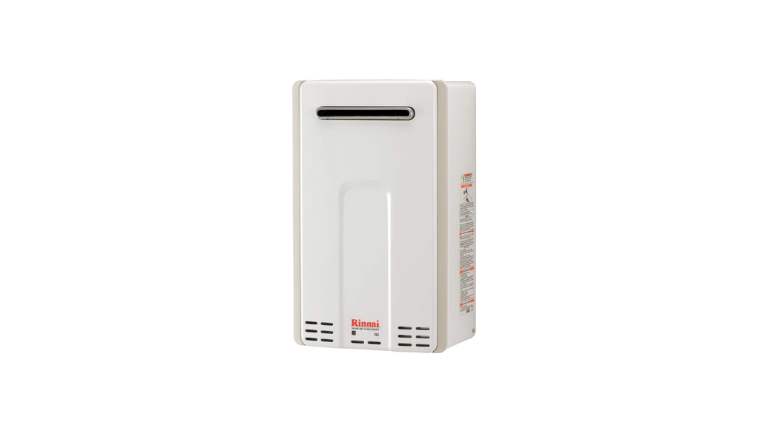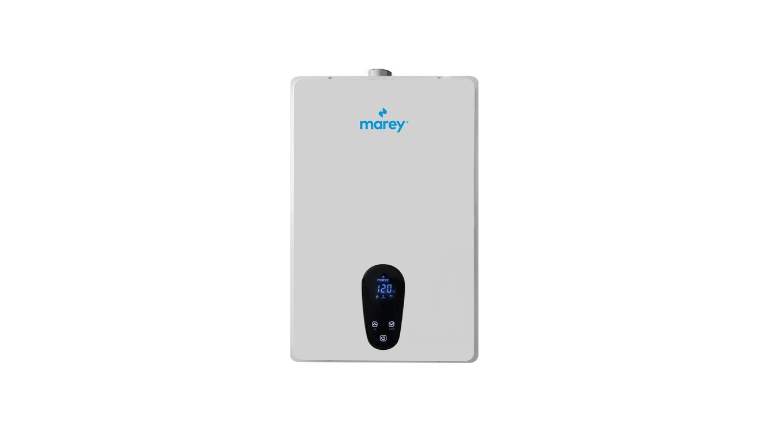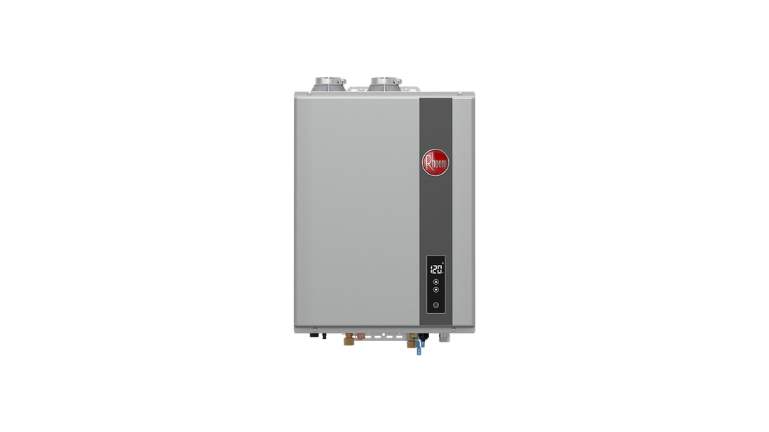Gas water heaters are a great option for homeowners who want to enjoy hot water anytime they need it. Unlike electric water heaters, gas water heaters use natural gas, or propane, to heat water more quickly and efficiently. They also have lower operating costs and longer lifespans. In this article, we will explore some of the best gas water heaters on the market and help you find the one that suits your home.
Runnatal Natural Gas Water Heater

Experience instant hot water with the Runnatal Natural Gas Water Heater. Effortlessly adjust temperatures from 30°C to 65°C on the high-sensitive LED display, ensuring your desired comfort with each use. Designed for safety, it features 12 protection methods, including dry burning and over-temperature safeguards. With its energy-saving modes, you can cut natural gas costs by up to 60% in both summer and winter. Crafted from durable brushed stainless steel, it promises long-lasting performance, complemented by a built-in oxygen-free copper water tank for extended durability.
This tankless water heater offers a seamless blend of convenience and reliability. Its compact design, measuring 13.6 inches in width and 21.2 inches in height, makes it ideal for indoor installation. Plus, with its innovative power adjustment based on flow rate, you’ll enjoy efficient hot water delivery while reducing energy consumption. Upgrade your home with the Runnatal Natural Gas Water Heater for endless hot water comfort.
Pros:
- Tankless design for on-demand hot water
- High-sensitivity Sensitive Touch LED Display for easy temperature control
- 12 advanced safety features for user protection
- Energy-efficient with real-time power adjustment
- Durable brushed stainless steel construction
- Summer and winter modes for optimized gas consumption
Cons:
- No serial number for product identification
- Installation expertise is required; it is not suitable for inexperienced users
- Pressure relief valve maintenance is required in cold weather
Rinnai V65EN Tankless Hot Water Heater

Unleash endless hot water with the Rinnai V65EN Tankless Hot Water Heater. Compact and efficient, this gas-powered unit delivers a steady stream of hot water, serving up to 5 appliances simultaneously with its impressive 6.5 gallons per minute flow rate. Designed for both energy and space efficiency, it heats water only when needed, reducing energy consumption and minimizing long-term damage with enhanced scale detection.
Professional installation is recommended to ensure optimal performance and longevity. Backed by a 10-year heat exchanger warranty, a 5-year labor warranty, and a 1-year parts warranty, this tankless water heater guarantees reliability and peace of mind. Say goodbye to cold showers and hello to consistent, on-demand hot water with the Rinnai V65EN.
Pros:
- Endless hot water supply
- Compact and durable design
- Energy-efficient with an impressive. 82 Energy Factor
- Suitable for outdoor installation
- High-performance flow rate of up to 6.5 GPM
- Enhanced scale detection for unit protection
- Certified for manufactured (mobile) homes
- Integrated error code indicator for easy troubleshooting
- 10-year warranty on heat exchanger, 5 years on labor, and 1-year on parts
Cons:
- Professional installation recommended
- Gas-powered appliances may not be suitable for all households
- Initial cost investment
- Limited to natural gas as a power source
- Requires regular maintenance for optimal performance
MAREY Natural Gas Tankless Water Heater

Discover the MAREY Natural Gas Tankless Water Heater, a compact solution revolutionizing your water heating experience. With dimensions of 17.1 inches in width and 26.2 inches in height, this unit offers efficient performance and smart design. Its 170,000 BTU capacity ensures endless hot water supply, catering to multiple use points simultaneously, while its user-friendly display allows dynamic power adjustment for personalized usage.
CSA-certified for safety and quality, this water heater features multiple security layers, including overheat and flame failure protection. Made of stainless steel and copper, it boasts an 82% energy efficiency level, saving both space and installation time with its compact, wall-mounted design and standard 3-inch exhaust venting. Trust in MAREY’s 5-year limited warranty and over 65 years of innovative water heating solutions for unparalleled reliability and satisfaction.
Pros:
- High-Efficiency Design
- Stainless Steel Venting Exhaust
- CSA-certified for Safety
- LED Touch Screen for Easy Control
- Oxygen-Free Copper Heat Exchanger
- Anti-Freeze Protection
- UL-listed and DOE-compliant
Cons:
- Performance Affected Above 2000 Feet Elevation
Rheem Natural Gas Water Heater

Elevate your home’s water heating system with the Rheem Natural Gas Water Heater. Crafted from durable stainless steel, this unit boasts a compact design, measuring 17.7 inches in width and 23.7 inches in height. With a maximum flow rate of 6.8 gallons per minute, it ensures a steady and efficient supply of hot water for your household needs.
Featuring adjustable temperature settings ranging from 100 to 140°F and equipped with electric ignition for hassle-free operation, this water heater offers both convenience and reliability. Backed by a comprehensive warranty, including 1 year for labor, 15 years for the heat exchanger, and 5 years for parts, it guarantees peace of mind for years to come. Experience optimal performance and comfort with the Rheem Natural Gas Water Heater, the perfect blend of quality, efficiency, and durability.
Pros:
- Continuous hot water supply for the entire house
- Super high efficiency, saving on energy costs
- Water-saving setting conserves up to 1,100 gallons annually
- Hot-start programming prevents cold-water bursts
- Compact design with quick-hang bracket for easy installation
- PVC venting compatibility for maximum flexibility
Cons:
- The maximum flow rate may be insufficient for very large households with high water demand
- Natural gas-powered vehicles may not be suitable for areas without gas infrastructure
- Initial investment cost may be higher compared to traditional water heaters
Camplux 5L Outdoor Portable Water Heater

Compact yet powerful, the Camplux 5L Outdoor Portable Water Heater stands as a beacon of convenience for adventurers and homeowners alike. CSA safety standard approved, it boasts features like flame failure and anti-freezing protection, ensuring safety for the whole family. With dimensions of 11.42 inches in width and 20.28 inches in height, this lightweight design, weighing just 10 pounds, is equipped with a portable handle for effortless transportation.
Equipped with a 10 KW power source and constructed from durable iron and copper, this water heater delivers instant hot water, capable of reaching temperatures up to 176°F. Its 1.32-gallon capacity and 3.0 PSI water pressure startup make it ideal for various settings, from RVs to remote cabins, providing a reliable source of warmth wherever you roam.
Pros:
- CSA safety standards approved
- Lightweight and portable design
- Quick, 15-minute installation
- Powerful 10-KW output (28,000 BTU/hour)
- Instant hot water without preheating
- Anti-freezing and over-heating protection
- Automatic water pressure adjustment
Cons:
- Battery-powered (may require occasional battery replacement)
- Limited to 1.32 gallons capacity
- Ideal for smaller spaces or outdoor use only
Buying Guide: Best Gas Water Heaters for Reliable Hot Water Supply
Ensuring a steady supply of hot water is crucial for maintaining a comfortable and convenient lifestyle. Gas water heaters have long been a popular choice due to their efficiency, cost-effectiveness, and reliability. Whether you’re building a new home or replacing an aging unit, selecting the right gas water heater can be a daunting task. This buying guide aims to provide you with a comprehensive understanding of the factors to consider when choosing the best gas water heater for your needs.
Types of Gas Water Heaters
Before delving into the selection criteria, it’s essential to understand the different types of gas water heaters available in the market. The two primary categories are tank-type and tankless (on-demand) water heaters.
Tank-Type Gas Water Heaters
Tank-type gas water heaters are the traditional and most common type. These units consist of an insulated tank that stores and continuously heats a predetermined amount of water. When hot water is required, it is drawn from the tank and replenished with cold water, which is then heated by the gas burner. Tank-type water heaters are available in various sizes, ranging from 20 to 80 gallons, to accommodate different household sizes and hot water demands.
Tankless (On-Demand) Gas Water Heaters
Tankless gas water heaters, also known as on-demand or instantaneous water heaters, do not store hot water. Instead, they heat water as it passes through the unit, providing an endless supply of hot water as long as the demand falls within the unit’s capacity. These water heaters are typically more compact and energy-efficient than their tank-type counterparts, making them an attractive option for smaller households or those looking to conserve energy.
Factors to Consider When Choosing a Gas Water Heater
To ensure you make an informed decision, consider the following factors when selecting a gas water heater:
Fuel Type and Availability
Natural gas and propane are the two primary fuel types for gas water heaters. If your home has access to a natural gas line, a natural gas water heater may be the more cost-effective option. However, if natural gas is not available in your area, a propane water heater may be a better choice. Ensure that your chosen fuel type is readily available and compatible with your home’s existing infrastructure.
Energy Efficiency
Energy efficiency is a crucial consideration when selecting a gas water heater, as it can significantly impact your utility bills and environmental footprint. Look for water heaters with high Energy Factor (EF) ratings, which indicate the unit’s overall efficiency in converting fuel into hot water. Higher EF ratings translate to lower operating costs and reduced greenhouse gas emissions.
Tank Size or Flow Rate
The size of your household and your hot water usage patterns will determine the appropriate tank size or flow rate for your gas water heater. For tank-type water heaters, select a tank size that can accommodate your household’s peak hot water demand. For tankless water heaters, consider the maximum flow rate (measured in gallons per minute) to ensure it can handle multiple hot water applications simultaneously.
Venting Requirements
Gas water heaters require proper venting to safely expel combustion byproducts. Ensure that your chosen water heater meets the venting requirements for your home or building. Some models may require specific venting configurations or materials, which can impact installation costs and complexity.
Safety Features
Safety should be a top priority when selecting a gas water heater. Look for models equipped with features like automatic shut-off valves, overpressure relief valves, and temperature control mechanisms. These features help prevent potential hazards such as gas leaks, excessive pressure buildup, and scalding water temperatures.
Warranty and Maintenance
Consider the warranty coverage offered by different manufacturers, as well as the expected lifespan and maintenance requirements of the water heater. Longer warranties and lower maintenance needs can save you money in the long run and provide peace of mind. Additionally, ensure that the water heater you choose is compatible with any existing water treatment systems or devices in your home.
Conclusion
Choosing the best gas water heater for your home requires careful consideration of various factors, including fuel type, energy efficiency, hot water demand, venting requirements, safety features, and warranty coverage. By taking the time to evaluate your specific needs and preferences, you can select a reliable and efficient gas water heater that provides a steady supply of hot water for years to come. Remember to consult with professional plumbers or contractors for expert guidance and proper installation to ensure optimal performance and safety.
Frequently Asked Question
What size gas water heater do I need for my home?
The size of the gas water heater you need depends on factors such as the number of people in your household and your hot water usage patterns. As a general guideline, a family of four typically requires a 40- to 50-gallon water heater. However, it’s best to consult with a professional plumber to determine the appropriate size for your specific needs.
Are gas water heaters more energy-efficient than electric ones?
Gas water heaters tend to be more energy-efficient than electric water heaters, especially in areas where natural gas is readily available and affordable. Gas heaters heat water more quickly and recover faster after use, making them a preferred choice for larger households with high hot water demands.
How often should I maintain my gas water heater?
Regular maintenance is essential for the efficient and safe operation of your gas water heater. It’s recommended to schedule a professional inspection and maintenance service at least once a year. This includes checking for leaks, inspecting the burner and flue, flushing the tank to remove sediment buildup, and testing the pressure relief valve.
What safety precautions should I take when using a gas water heater?
Safety is paramount when it comes to operating a gas water heater. Make sure the area around the water heater is well-ventilated to prevent the buildup of carbon monoxide. Install a carbon monoxide detector nearby and test it regularly. Additionally, always follow the manufacturer’s instructions for proper installation, use, and maintenance, and never store flammable materials near the water heater.
How long do gas water heaters typically last?
With proper maintenance and care, a gas water heater can last between 8 and 12 years on average. However, factors such as water quality, usage patterns, and maintenance practices can affect the lifespan of the unit. It’s a good idea to monitor your water heater for signs of aging, such as leaks or decreased efficiency, and consider replacing it if it’s nearing the end of its lifespan to avoid unexpected failures.

Ross Walters, an Electrical supplies and Water Appliances specialist, shares his extensive expertise on top platforms. With a focus on empowering professionals and enthusiasts, Ross delivers up-to-date insights and practical advice. His commitment to staying abreast of industry trends establishes him as a trusted source for navigating the complexities of electrical systems and water appliances.
